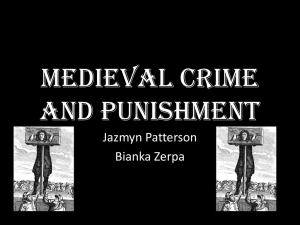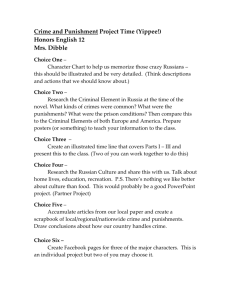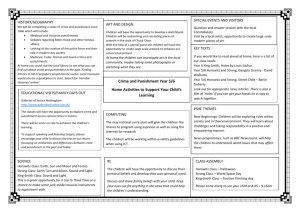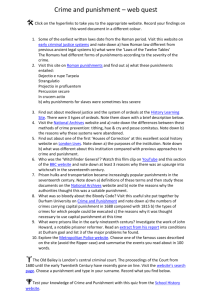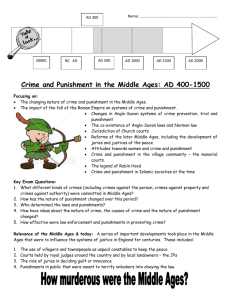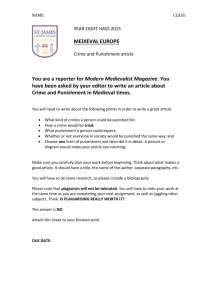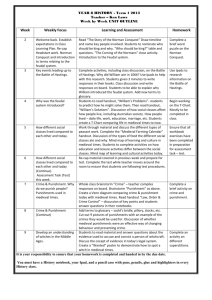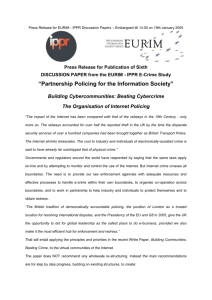GCSE (Crime & Punishment)
advertisement
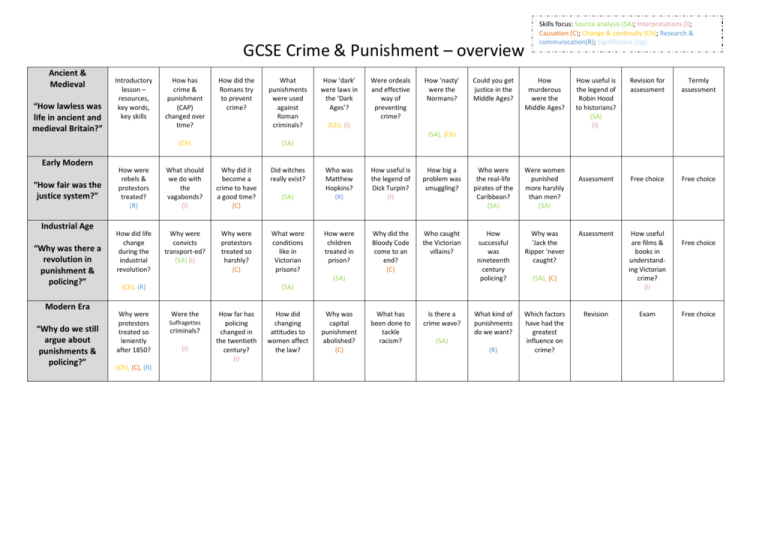
GCSE Crime & Punishment – overview Ancient & Medieval “How lawless was life in ancient and medieval Britain?” Introductory lesson – resources, key words, key skills How has crime & punishment (CAP) changed over time? How did the Romans try to prevent crime? “How fair was the justice system?” Industrial Age “Why was there a revolution in punishment & policing?” Modern Era “Why do we still argue about punishments & policing?” How ‘dark’ were laws in the ‘Dark Ages’? Were ordeals and effective way of preventing crime? How ‘nasty’ were the Normans? Could you get justice in the Middle Ages? How murderous were the Middle Ages? (Ch), (I) How useful is the legend of Robin Hood to historians? (SA) (I) Revision for assessment Termly assessment Assessment Free choice Free choice Assessment How useful are films & books in understanding Victorian crime? (I) (SA), (Ch) (Ch) Early Modern What punishments were used against Roman criminals? Skills focus: Source analysis (SA); Interpretations (I); Causation (C); Change & continuity (Ch); Research & communication(R); Significance (Sig) (SA) How were rebels & protestors treated? (R) What should we do with the vagabonds? (I) Why did it become a crime to have a good time? (C) Did witches really exist? How did life change during the industrial revolution? Why were convicts transport-ed? (SA) (I) Why were protestors treated so harshly? (C) What were conditions like in Victorian prisons? (SA) Who was Matthew Hopkins? (R) How useful is the legend of Dick Turpin? (I) How big a problem was smuggling? Who were the real-life pirates of the Caribbean? (SA) Were women punished more harshly than men? (SA) How were children treated in prison? Why did the Bloody Code come to an end? (C) Who caught the Victorian villains? How successful was nineteenth century policing? Why was ‘Jack the Ripper ‘never caught? What kind of punishments do we want? Which factors have had the greatest influence on crime? (SA) (Ch), (R) Why were protestors treated so leniently after 1850? (Ch), (C), (R) (SA), (C) (SA) Were the Suffragettes criminals? (I) How far has policing changed in the twentieth century? (I) How did changing attitudes to women affect the law? Why was capital punishment abolished? (C) What has been done to tackle racism? Is there a crime wave? (SA) (R) Revision Exam Free choice Free choice

